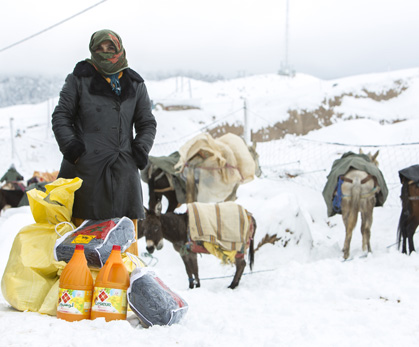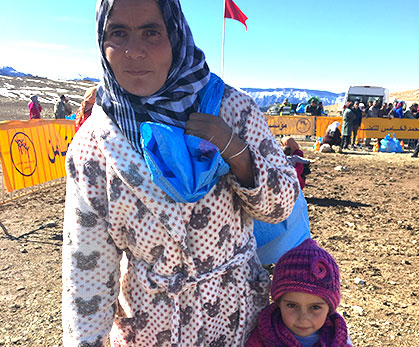Soulager les populations des zones enclavées
A la Fondation, la mobilisation solidaire se renforce à chaque épisode de grand froid. Chutes importantes de neige, basses températures, vent glacé et persistance de ces facteurs créent des conditions de forte vulnérabilité sociale et de risque humanitaire. Du fait de leur éloignement et de leur manque d’accès notamment aux services de santé, les régions montagneuses et les localités rurales sont les plus affectées par le grand froid.
Les habitants souffrent tout particulièrement, lorsque les douars se trouvent enclavés et les accès aux ressources alimentaires et médicales limités. Le soutien de ces populations constitue un enjeu majeur de solidarité et de cohésion sociale. La Fondation, en appui aux actions menées par l’Etat (réhabilitation et sécurisation des routes, prise en charge des sans-abris, moyens de chauffage, soins de santé en urgence, etc.), se mobilise en faveur des populations vulnérables. Elle leur apporte aide et assistance de proximité afin de les soulager de l’impact du froid.
Ce soutien humanitaire prend la forme de la distribution d’un kit de denrées alimentaire et de couvertures, alloué à chaque famille issue des douars enclavés. La Fondation organise également, selon les situations de crise, des caravanes médicales afin d’apporter les premiers soins d’urgence, donner accès aux médicaments et évacuer les cas difficiles.
Le Kit Grand froid se compose de couvertures et de produits alimentaires : 10 kg de farine, 5 kg de riz, 5 kg de sucre, 1,2 kg de lait en poudre, 500 gr de sel, 400 gr de thé et 5 litres d’huile





